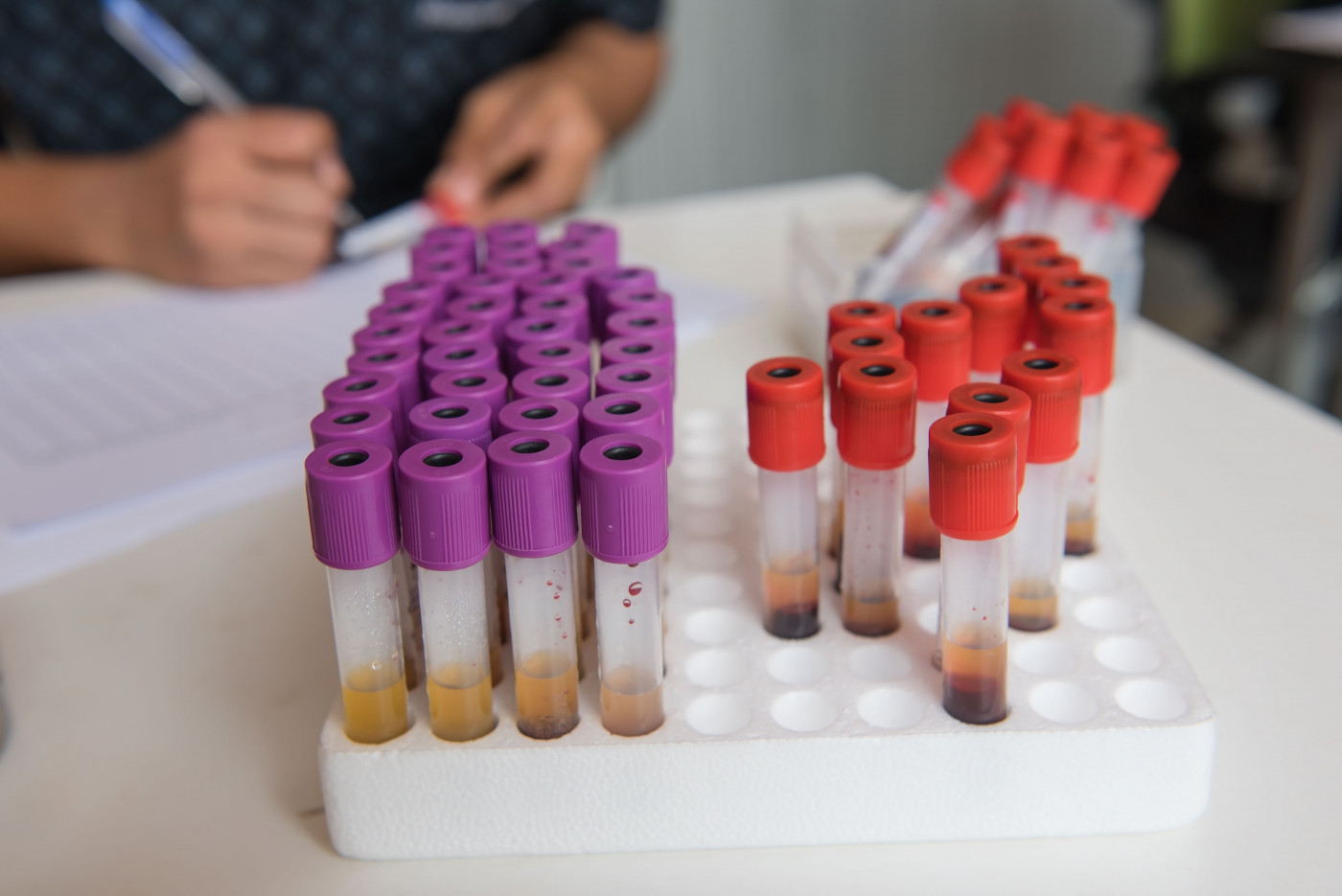Blood Levels of Anti-Inflammatory Protein High in Patients, Study Finds
Written by |

Adiponectin, an anti-inflammatory protein produced by adipose tissue, was seen to be elevated in the blood of people with sarcoidosis in a small study, and may help to ease disease severity.
The finding was described in the study “Serum adipokine levels in patients with sarcoidosis” published in the journal Clinical Rheumatology.
Several tissues in the body are involved in the production of factors that influence inflammatory processes. One is the adipose tissue, the fat deposits naturally present in certain areas of the body. Adipose tissue produces proteins called adipokines, which contribute to the regulation of the immune system, among other functions.
Adiponectin and leptin are two of the most well-researched adipokines. Leptin is generally thought to have a proinflammatory effect, while adiponectin has an anti-inflammatory action.
In people with sarcoidosis, chronic inflammation occurs along with the formation of granulomas, and it is possible that adipokines may play a role in their development.
With this in mind, researchers in Turkey measured the levels of leptin and adiponectin in blood samples from people with sarcoidosis, to determine if there was a link between these adipokines and the clinical and laboratory features of this condition.
In total, samples from 44 sarcoidosis patients (mean age of 46.3; 13 males and 31 females) and 41 age- and sex-matched healthy volunteers were analyzed.
Data showed that 90.9% of those in the sarcoidosis patient group had arthralgia (joint pain), 72.7% had arthritis, 47.7% had erythema nodosum (pressure-sensitive red bumps on the skin), and 34.1% had enthesitis (inflammation of the tissue connecting the bone and tendons or ligaments).
Moreover, 6.8% of patients had uveitis (inflammation in the eye), 2.3% had neurosarcoidosis (granulomas in and around the nervous system), and 2.3% had myositis (inflammation in the muscles).
Among those with arthritis, 28 patients had swelling of the ankle joint, three swelling in the knee joint, and one in the wrist joint.
Measurements of laboratory markers for sarcoidosis found high blood levels of the angiotensin-converting enzyme in 54.5% of patients, calcium in 25%, and 25-hydroxy-vitamin D3 in 11.5% of patients.
Results showed that blood levels of adiponectin were higher in patients with sarcoidosis than in healthy volunteers. Adiponectin levels were also seen to be linked to arthralgia and ankle joint swelling, but no other clinical features or laboratory blood markers.
In contrast to adiponectin, blood leptin levels did not differ between sarcoidosis patients and volunteers. Leptin levels also did not influence any clinical or laboratory features of sarcoidosis.
At the time of the study, 18 patients used nonsteroidal anti-inflammatory drugs (NSAIDs) to treat sarcoidosis, 17 were receiving a short-term treatment with low-dose corticosteroids, five patients took hydroxychloroquine, two used colchicum-dispert, and two others were taking either azathioprine or methotrexate.
Patients taking either NSAIDs or disease-modifying anti-rheumatic medications (like hydroxychloroquine, azathioprine or methotrexate) had similar levels of leptin and adiponectin, results showed.
Interestingly, scientists found that female patients had higher levels of leptin and adiponectin in their blood, but there was not enough data available to determine if this was linked to their age or menopause.
“In this study, high serum adiponectin level was detected in patients with sarcoidosis, while serum leptin level was similar in the sarcoidosis and control [volunteer] group,” the researchers wrote.
The team suggested that “high adiponectin levels in sarcoidosis patients may mitigate the inflammatory response [caused by leptin], resulting in the mild form of disease and/or spontaneous remission.” But “more prospective multicenter studies are needed to shed light on this issue.”





